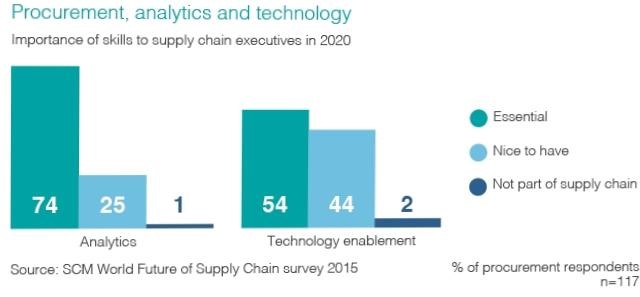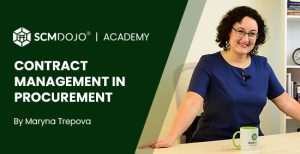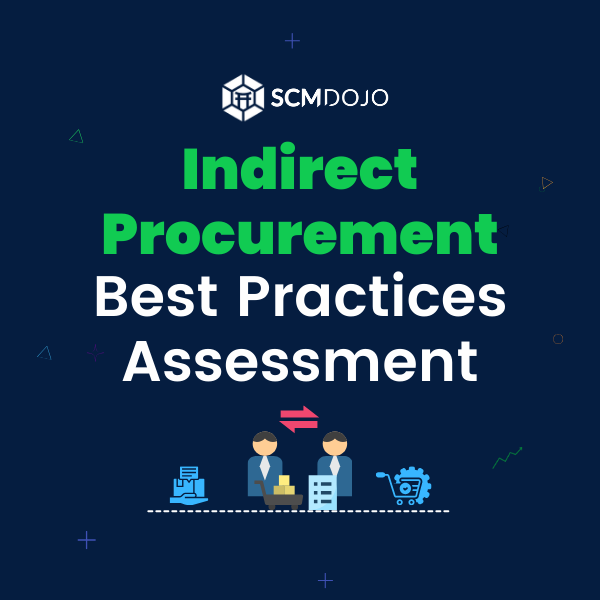Artificial Intelligence (A.I) in procurement is transforming industries, and the leap of change is fast-tracking, that is a reason why I have mentioned A.I as key future supply chain trend . A.I in procurement can trade commodities and even out-perform teams of experts. The pace is becoming fast because A.I in procurement has a lead time of years to turn out to be more competitive in these challenges, but as it surpasses human expert abilities in every area, its acceptance rate increases — and so does its capacity to absorb as it takes in more data. The gap between Artificial intelligence in procurement and human expertise have grown ever more significant with the first-mover lead to make sure firms reach their tipping level of achieving superior act with A.I in procurement over humans. Nevertheless, there is also a pro-active rush ahead of the curve as businesses are trying to know before other players which A.I in procurement solutions will offer the best value. It is vital to separate the excitement from reality and understand how Artificial intelligence in procurement will change the game.
A below-presented survey from SCM World shows the need advance Analytics and Technology Enablement amongst Procurement professional as key future requirement.
The digital age has created several emerging technologies, to which is offering newer prospects for businesses to forecast and respond more efficiently to consumer demands. Amongst the leading trend is Artificial intelligence in procurement. Artificial Intelligence has provided a more modern, more effective, and intelligent technique of streamlining business processes.
A.I in procurement has sustainably aided in achieving higher business results and first-mover benefit for early users. Below are three (3) reasons why A.I will change Procurement
Artificial Intelligence Can Vastly Improve Procurement Process.
The significant trend in technology presently is the competition to create more sophisticated machine learning processes. Machine Learning is the capability of computers to self-teach and advances from experience without having to be overtly programmed. Built on human neural learning, these individual computers take loads of examples and apply layers to create on itself and virtually interpret solutions without any human interference.
With a mobile-centric and technologically motivated movement for Artificial intelligence in procurement, we can deduce how A.I can substantially improve the way procurement experts browse, pick, order, and handle products and services. In practice, Artificial intelligence in procurement would be able to forecast and comprehend procurement’s requirements even before the experts do. For example, buying recommendation engine is a strategic decision tool that predicts the right buy price of a commodity and recommends actions based on market factors and unstructured external data. The recommendation is based on ‘should-cost’ models
Enhancing Strategic Procurement With A.I Algorithms and Big Data Analytics
Current procurement procedures are creating more and more data – partly because they combine various systems, including contract management, electronic catalog, e-procurement, ERP, and SRM. Several firms do not make use of this data’s full potential. While some do not make use of it at all. Today’s high performing A.I in procurement solutions can aid you:
-
-
- Automate repetitive tasks.
- Disclose concealed potential.
- Gain smart insights to resolve several issues.
- Submit recommendations for actions.
-
Others include strategic procurement which can be of advantage with big data algorithms. Artificial intelligence in procurement also assists in preparing large amounts data for intelligent analytics and actions using virtual assistance.
Influence of Chatbots on Procurement
Conversational interface (CI), also known as chatbots, incorporates both voice and written dialogs that can imitate chatting with a real human. As an alternative to clicking icons and selecting syntax-specific instructions, the communication process becomes hassle-free and straightforward. With Artificial intelligence in procurement and the upside of chatbots, it also can accomplish difficult tasks and take verdicts freely. Also, A.I in procurement can be context mindful because it can recall individual it has earlier chatted with through data from other apps. Other than improving the techniques businesses used to connect with people, Artificial intelligence in procurement are using chatbots to create the potential of turning voice assistant technology into a simulated service functionality that will entirely revolutionize the procurement experience.
Why Is It Important for Procurement Professionals to Learn and Understand The Impact Of A.I?
The budding benefits of A.I in procurement surpass the automation of downstream roles. Additional strategic benefits lie in the more specific events. Strategic sourcing is a notion most large establishment have struggled to perfect. The significance of mechanism design, optimization and game theory are only completely understood by a tiny number of the minority that has been making use of sourcing optimization for more than a few years now to gain a noteworthy competitive lead in the business. Educating procurement professionals to understand best practice has proven intangible. This is logical, for the reason that most procurement professional training courses do not consist of subjects like game theory.
The scientific concepts of efficiency, incentive compatibility, and Nash equilibrium are often too challenging for most professionals since their first degrees are amongst the silos of business, finances, supply chain or sciences. Best practices depend on an interdisciplinary acquaintance that may take several years of schooling. It is not visible to assume most procurement professionals can achieve sufficient breadth and depth of acquaintance to implement best practices in what is already involved and challenging field. Artificial intelligence in procurement makes best practice easy. A.I in procurement is better at:
-
-
- Automatically handling continuous tasks. (e.g., factory automation and processing).
- Distinguishing patterns in sets of significant data (e.g., spend analytics).
- Tactical reasoning in a substantial and complex decision (e.g., strategic sourcing).
-
The strategic reasoning is amongst the most difficult challenges facing A.I in procurement but it also comes with the most rewards. To fully comprehend strategic rationale, the investment of Artificial intelligence in procurement involves years of effort, improvement, iterative, and training fine-tuning. It also requires suitable designs by A.I experts with a higher degree in relevant subfields, as well as a computational mechanism and optimization design. True A.I in procurement applications offer essential advances and truly captures the distinctions of rational policymaking.
This notion is misplaced on most dealers that effuse the importance of A.I in procurement but misjudge the measure of practical challenges linked with the most tactically essential benefits. Some crazy extrapolations are applied when the limits of possibilities are not adequately understood. Procurement professionals can sometimes make more promises or mistakes about which tasks are realistic and which are still not within reach. Nonetheless, there is a fundamental truth in most of the excitement: A.I in procurement is revolutionizing the way we work, and procurement process are ready for this transformation. Strategic sourcing is where the most noteworthy change lies ahead since the core data can be taken in organized tables and used to create a corpus of knowledge.
Steps Procurement Professional Needs to Take to Adopt A.I In Procurement
Below are the steps procurement professional needs to take to adopt A.I in procurement.
Building the Precise Platform to Get Better Results From A.I In Procurement.
Elementary machine learning technology is before now used by some procurement apps in subfields like contract and spend analytics. It is mostly constrained to systematizing the processes of analyzing, cleaning, classifying, and collecting expenditure data in any firm — to recognize savings or paths for better efficiency. Nowadays, using Natural-Language Processing (NLP) and Natural-Language Generation, procurement technology makers are producing Cognitive Procurement Advisors (CPAs) and Virtual Personal Assistants (VPAs) to improve automated process and effectiveness additionally.
Create A Foundation for Success.
The genuineness of artificial intelligence in procurement is that most establishments would not create outstanding value except the A.I technology is implemented on top the precise data, platform, and processes. Currently, most firms only handle part of their spending with A.I technology in procurement. The foremost step to automate spend management is to ensure that present tools are both suitable for the purpose and are used all over the system. Appropriate use of current tools offers the system ready for A.I, along with the data needed to train it. It implies an obligatory method of e-sourcing and distribution of duty for steady application and authentication of spend analytics data to procurement professionals. At least, all contracts ought to be kept in a contract repository, and other solutions should be appropriately arranged and occupied by applicable dealers.
Groups of Spend.
One more notable area to address is the groups of spending that are not appropriate for current solutions. Using artificial intelligence in procurement to automate 100% of spend management is neither visible nor compulsory for most firms. Whenever a procedure is not computerized, it should be due to strategic choice instead of an omission. Procurement professionals should prioritize investment in A.I solutions that back automation for expenditure categories which are not well-served by present systems.
Human Learning Is Still Required.
Skills are an essential piece of this puzzle that is often ignored. Procurement professionals who lack the needed data science and logical skills will find it hard to appreciate the prospects and limits of artificial intelligence in procurement. Establishments that do not have devoted procurement professionals will need to add this role, but it may be difficult to validate a permanent position for smaller businesses. In such cases, it is vital to set aside budget and time to training staffs within the procurement teams.
CONCLUSION
Once the right A.I solutions platform and skills are set up, businesses should be prepared to further test with pilot programs in areas where there are prevalent use cases for automation and machine learning. Every procurement professional is urged to explore some use cases first like contract analytics, risk management, and spend analytics. The first two use cases will entail more-advanced quantitative skills to understand what to analyze and measure, and how to grade the ensuing data. Artificial intelligence in procurement has come to stay, and it is essential every procurement professional adjust finely to this trend.
Recommended Reading
Sourcing and Procurement in SAP S/4HANA (SAP PRESS)
Artificial Intelligence: A Modern Approach
Artificial Intelligence and Machine Learning for Business: A No-Nonsense Guide to Data Driven Technologies
Sourcing and Procurement in SAP S/4HANA (SAP PRESS)
About the Author- Dr Muddassir Ahmed
Dr MuddassirAhmed is the Founder & CEO of SCMDOJO. He is a global speaker, vlogger and supply chain industry expert with 17 years of experience in the Manufacturing Industry in the UK, Europe, the Middle East and South East Asia in various Supply Chain leadership roles. Dr. Muddassir has received a PhD in Management Science from Lancaster University Management School. Muddassir is a Six Sigma black belt and founded the leading supply chain platform SCMDOJO to enable supply chain professionals and teams to thrive by providing best-in-class knowledge content, tools and access to experts.
You can follow him on LinkedIn, Facebook, Twitter or Instagram








